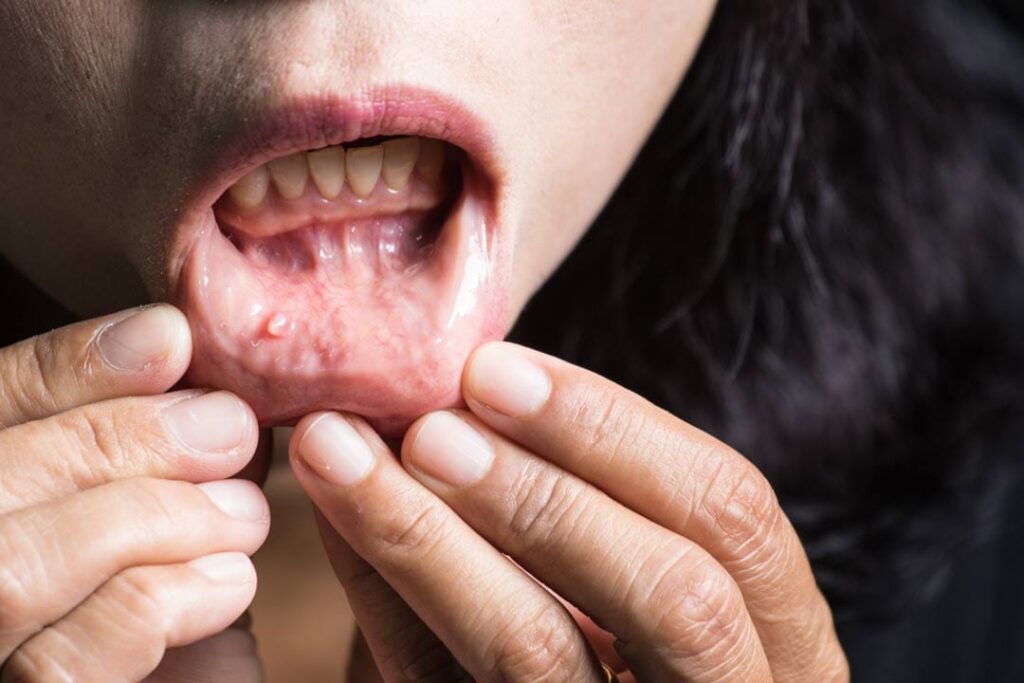Oral cancer is closely related to alcohol consumption and smoking. About 80 percent of people with oral cancer smoke, and about 70 percent consume high amounts of alcohol. For people who smoke and drink simultaneously, the risk of developing oral cancer is greater than for those who do not have these unhealthy habits. Another risk factor is gender, as men are twice as likely to suffer from oral cancer than women.
If you suspect that you or your loved one has oral cancer, seeing a dentist in North Central Phoenix is important as soon as possible. Oral cancer is treatable if discovered at its early stages. Treatment methods include chemotherapy, targeted therapy, and radiation therapy. Meanwhile, here are some common questions related to oral cancer and their answers.
FAQs on the early signs of oral cancer
- What are the early symptoms of oral cancer?
Quite obviously, the most asked question related to signs of oral cancer is about the early symptoms of the condition. Oral cancer symptoms are often mistaken for other, less serious conditions. Due to this ignorance and carelessness, many people suffer the consequences of oral cancer when they could have treated it during the early stages.
Symptoms include the following:
- Difficulty swallowing or chewing
- White or red patch formation on the tongue, gums, lining of the mouth, or tonsils
- A persistent sore throat or a feeling of something being stuck inside the throat
- Voice changes
- Persistent mouth sore
- Persistent pain in the mouth
- Tooth pain
- Jaw pain
- A lump or thickening in the cheek
- What causes oral cancer?
It is important to know the causes and risk factors of such a dangerous condition so that you can take preventative steps to protect yourself and your loved ones. The most influential risk factors for oral cancer known to mankind include heavy consumption of alcohol, smoking, and chewing tobacco. Doing all these together increases the risk even more.
Some additional risk factors include the following:
- Lack of fruits and veggies in the diet
- Have you had cancer before
- Precancerous conditions
- Family history of squamous cell carcinoma
- Sun exposure
- Weak immune system
- HPV (human papillomavirus)
- How is oral cancer typically diagnosed?
When you go for routine visits to the dentist, your dentist might find cancerous symptoms inside your mouth and warn you. But, most oral cancers are detected while diagnosing oral cancer, which includes a physical exam, a complete head and neck exam, a biopsy, and imaging tests. Blood tests and dental exams are also performed.
Oral cancer is a serious condition and can be fatal. Visit a dentist today.
About Author
You may also like
-
Why Implantable Collamer Lens Surgery is a Game-Changer for Eye Care in London
-
Lift Your Look: Face Lifting Techniques for Youthful Skin
-
Your Comprehensive Guide to NDIS Plan: Tips and Advice
-
What to Expect During a Physio-Osteo Session
-
Customising First Aid Kits: Tailoring Supplies to Meet Unique Needs and Requirements


